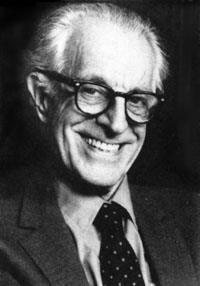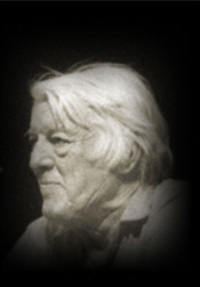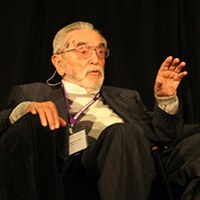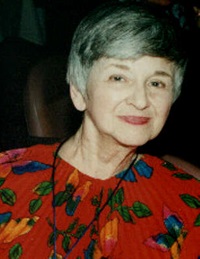EP85 Panel 11 - Group, Individual or Family Therapy II - Albert Ellis, PhD; Robert L. Goulding, MD; Salvador Minuchin, MD; Zerka Moreno
- Average Rating:
- Not yet rated
- Topic Areas:
- Topical Panels | Family Therapy | Group Therapy | Psychotherapy | Therapist Development
- Categories:
- Evolution of Psychotherapy | Evolution of Psychotherapy 1985 | Pioneers in Couples and Family Therapy
- Faculty:
- Albert Ellis, PhD | Robert L. Goulding, MD | Salvador Minuchin, MD | Zerka Moreno
- Duration:
- 58 Minutes
- Format:
- Audio Only
- Original Program Date:
- Dec 13, 1985
- License:
- Never Expires.
Description
Description: This conversation traces the changing landscape of psychotherapy through the lens of four influential voices. Albert Ellis shares how Rational Emotive Therapy adapts across settings, while Robert Goulding highlights the power of group work for clients who struggle with connection. Zerka Moreno speaks to the depth gained through role reversal, especially in grief work. Salvador Minuchin calls for a renewed focus on family systems and the social forces shaping clinical practice.
Moderated by John C Racy, MD.
Educational Objectives:
- To compare and contrast clinical and philosophical perspectives of experts.
*Sessions may be edited for content and to preserve confidentiality*
Credits
Handouts
| Timestamped Transcript (804.4 KB) | 18 Pages | Available after Purchase |
Faculty

Albert Ellis, PhD Related Seminars and Products
Albert Ellis, PhD, was an American psychologist who in 1955 developed Rational Emotive Behavior Therapy (REBT). He held M.A. and Ph.D. degrees in clinical psychology from Columbia University and American Board of Professional Psychology (ABPP). He also founded and was the President of the New York City-based Albert Ellis Institute for decades.
He is generally considered to be one of the originators of the cognitive revolutionary paradigm shift in psychotherapy and one of the founders of cognitive-behavioral therapies.[2]
Based on a 1982 professional survey of US and Canadian psychologists, he was considered as the second most influential psychotherapist in history (Carl Rogers ranked first in the survey; Sigmund Freud was ranked third).[3][4] Psychology Today noted, "No individual—not even Freud himself—has had a greater impact on modern psychotherapy."[5]

Robert L. Goulding, MD Related Seminars and Products
Robert Goulding, MD, is one of the leading exponents of Transactional Analysis. Along with his wife Mary Goulding, they developed an approach called Redecision Therapy. Redecision Therapy also includes unique elements based on the Goulding’s own experiences as seasoned psychotherapists. Their goal was to create a psychotherapy, based on the strengths and complimentary objectives of Gestalt therapy and Transactional Analysis, that was both brief and highly effective. Robert Goulding received his M.D. in 1944 from the University of Cincinnati and practiced general medicine until he switched to psychiatry in 1958. With his wife Mary, he founded the Wester Institute for Group and Family Therapy in Watsonville, California, and authored two books. Dr. Goulding is a Distinguished Life Fellow and member of the Board of Directors of the American Group Psychotherapy Association. He served as president of the American Academy of Psychotherapists. An extraordinarily talented therapist, he has synthesized Transactional Analysis and Gestalt into his own model, Redecision therapy.

Salvador Minuchin, MD Related Seminars and Products
Salvador Minuchin, MD, developed Structural Family Therapy, which addresses problems within a family by charting the relationships between family members, or between subsets of family. He was Director of the Philadelphia Child Guidance Clinic. Although it was minimally staffed when he began, under his tutelage the Clinic grew to become one of the most modeled and respected child guidance facilities in the world. In 1981, Minuchin began his own family therapy center in New York. After his retirement in 1996, the center was renamed the Minuchin Center. Dr. Minuchin is the author of many notable books, including many classics. His latest is Mastering Family Therapy: Journeys of Growth and Transformation. In 2007, a survey of 2,600 practitioners named Minuchin as one of the ten most influential therapists of the past quarter-century.

Zerka Moreno Related Seminars and Products
Zerka Moreno, TEP, along with her late husband, J.L. Moreno, developed the theory and practice of psychodrama. Zerka has taught psychodrama worldwide for more than 30 years since J.L. Moreno's death and is recognized as a leader in further realizing his vision. Zerka T. Moreno is honorary president of the American Society of Psychodrama and Group Psychotherapy; president of the Moreno Workshops; and honorary member of the Board of Directors of the International Association of Group Psychotherapy.
Zerka is the author and co-editor of many books and articles in the field of group psychotherapy and internationally known as a teacher, therapist and lecturer.


